News
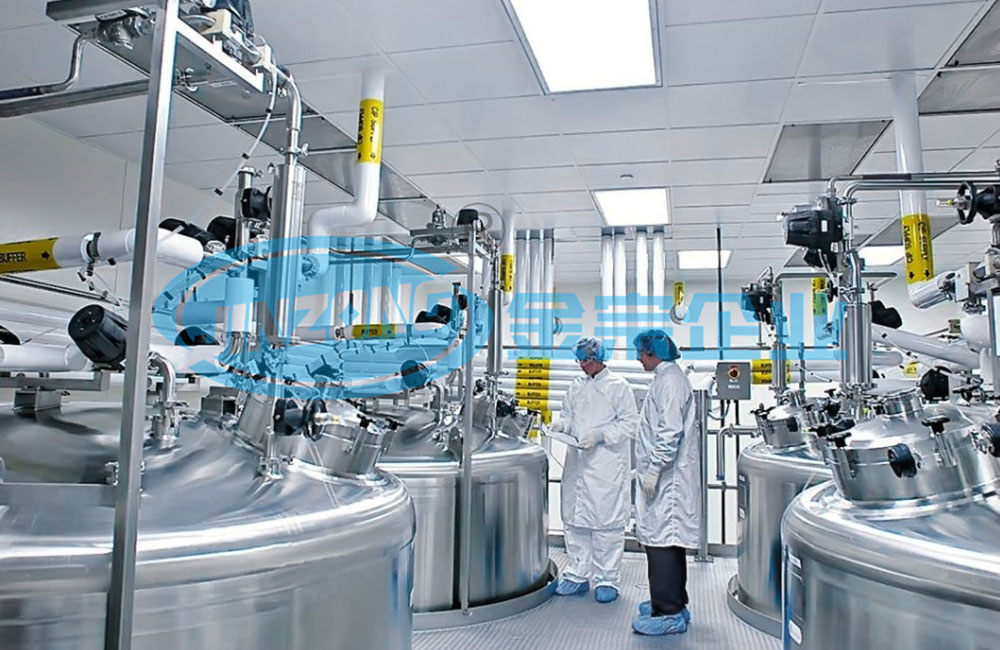
50% of Sri Lanka's pharmaceutical requirement to be produced domestically
The government is planning to produce 50% of the country’s requirement of pharmaceuticals locally within the next three years, the President’s Media Division (PMD) said in a statement. President Gotabaya Rajapaksa has stated that the objective is to provide high quality medicine to the public and the foreign market at affordable prices. All products are to be produced in accordance with the recommendations and standards of the World Health Organization (WHO).
Further, 85% of the country’s drug requirement is met through imports at an annual cost of Rs.130 billion. Producing pharmaceuticals locally will pave the way to save Rs.60 billion annually, the President said.
The President made these remarks during a discussion held at the Presidential Secretariat on Thursday with regard to the plans of the State Ministry of Pharmaceutical Production, Supply and Regulation.
Sri Lanka is currently the largest importer of drugs in the Asian region, President Rajapaksa has stressed, while noting that it was high time to turn the tables and added that large scale local investors are willing to contribute to this effort.
An investment zone of 400 acres is to be established in the Hambantota Industrial Zone for manufacturing medicine targeting the global market. Another investment zone for local investors is to be established in a 100-acre land at Oyamaduwa, Anuradhapura.
As the government is committed to improving the public sector as well as promoting entrepreneurs in the private sector, the President made an open invitation to all the pharmaceutical importers to invest in manufacturing medicine locally.
Local pharmaceutical manufacturers absent!
However, conspicuous by its absence was the Sri Lanka Pharmaceutical Manufacturers’ Association (SLPMA), the premier organisation that consists of business enterprises that are already engaged in the development and manufacture of pharmaceuticals and medical devices in the country. Sources at the Presidential Secretariat confirmed that the SLPMA was not represented at the meeting.
The SLPMA is an affiliated trade association under the umbrella of the Ceylon Chamber of Commerce. As the representative body of local manufacturers of pharmaceuticals and pharmaceutical products, SLPMA had hailed the move to establish a State Ministry for Pharmaceuticals by the newly elected government.
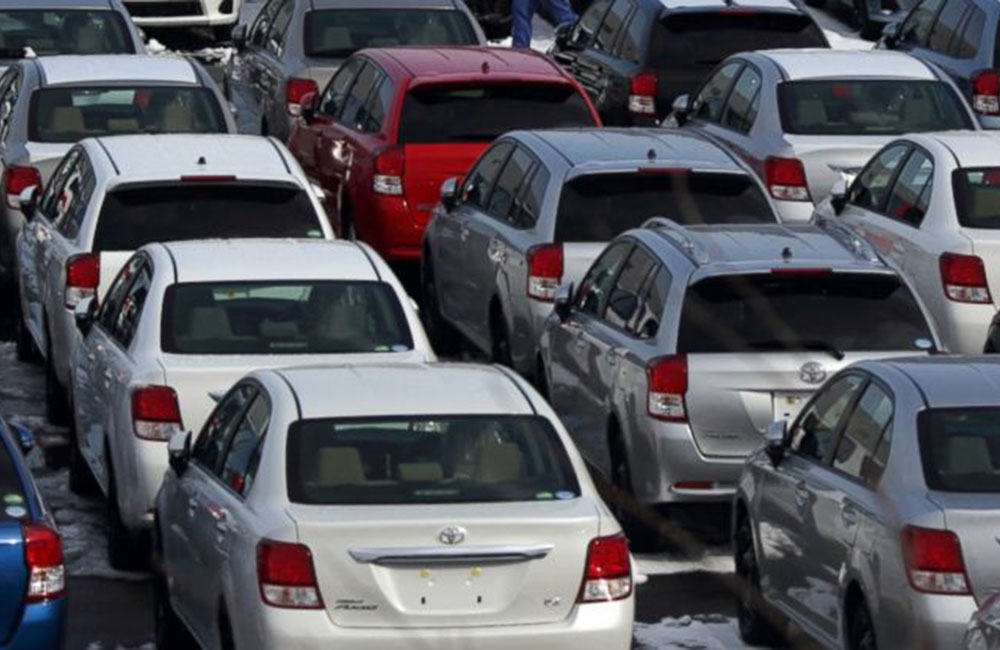
Cabinet and State Ministry secretaries get duty-free vehicle import permit
Cabinet and State Ministry secretaries who were deprived of their jobs due to the change of government in November last year are to be benefitted with the Government deciding to offer an alternative package including a first class duty-free vehicle import permit if they decide to revert to previous service.
Previously the officers had to be in service for three years, but according to a new circular issued by the Presidential Secretary P. B. Jayasundera this week, a period of one year was sufficient to be entitled to the duty-free vehicle permit.
A cabinet paper to this effect submitted by President Gotabaya Rajapaksa to provide an ‘alternative relief package’ to the secretaries who were deprived of their positions has been approved.
The Cabinet has also granted approval for Ministry Secretaries whose posts were abolished to be appointed to a suitable post prior to August 31, 2020 if they do not intend to retire under the provisions of the Minute on Secretaries. The Cabinet also agreed to grant salaries, allowances and all other privileges approved for the post held by them.
The Cabinet also decided that the secretaries would be attached to the Ministry of Public Service, Provincial Councils and Local Government until they retire under the provision of the Minute on Secretaries or they are appointed to posts in their previous service or any other suitable post.
Meanwhile, the Treasury on Friday announced that officials entitled to a duty-free vehicle permit would be allowed to buy unregistered vehicles in the local market with the tax concessions through a registered vehicle importer. Earlier this year, motor vehicle imports were suspended and it will continue.
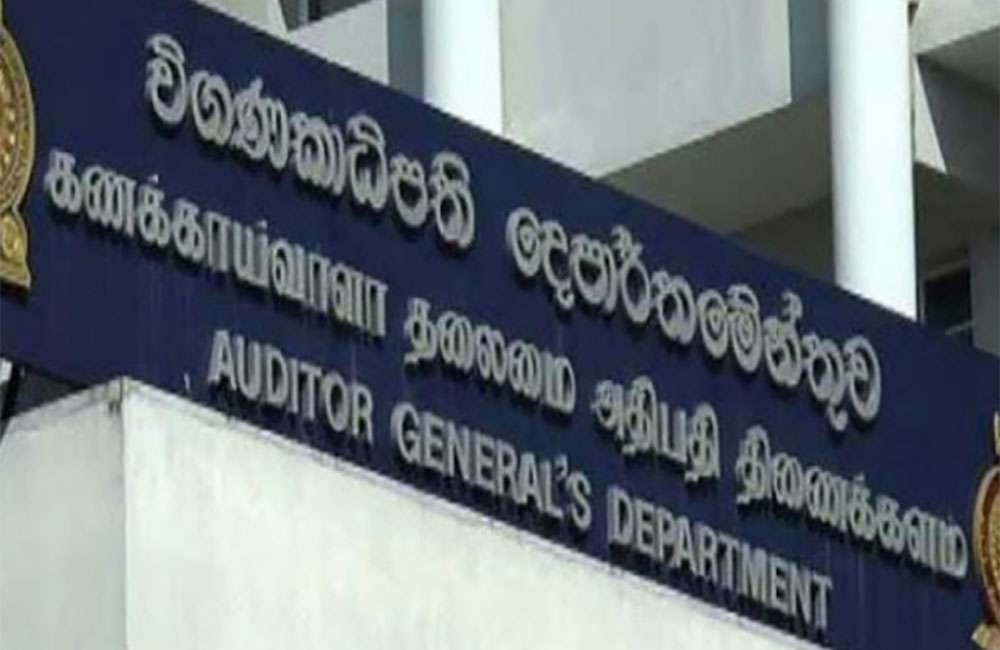
State Audit Service request President to rectify damaged caused by 20A
The independence of audit inspections on financial transactions of public institutions is to be shattered with the abolition of the audit service commission in accordance with the proposed 20th Amendment to the Constitution, state auditors warned.' The Sri Lanka Audit Inspectors’ Association has sent a letter to President Gotabaya Rajapaksa stating that the proposed 20th Amendment to the Constitution has caused great damage to the independence of the Auditor General and the scope of public audit, and also to the mechanism for the exercise of public financial control.
The Association has requested the President to immediately rectify the damage that has been caused by the proposed 20th Amendment to the state audit service.
The letter also points out that the Amendment deprives the public of their sacred right to know about the overall financial control of the country.
It also states that the removal of the Public Service Commission, Functional Commissions under Article 41 (b) of the Constitution, Office of the Secretary to the President, Office of the Secretary to the Prime Minister, Offices of the Cabinet of Ministers, which are allocated funds from the State Budget and assigned to the Auditor General for auditing under the Article 154 (1) of the Constitution and are subject to the financial control of Parliament from the scope is problematic.
The letter also states that the removal of companies registered under the Companies Act and holding 50% or more of the share capital in state, or state corporations and local government from the scope of the audit will lead to the complete exclusion of public finance from parliamentary control.
The letter points out that the exclusion of the audit of state-owned companies with more than 50% stake from the scope of the Auditor General breaks down the mechanism to see if these companies are operating in line with the President’s 'Vision of Prosperity' policy statement.
The association noted that some companies are reportedly already planning to withdraw from the state audit mechanism following the submission of these proposals.
It is said that these amendments have seriously damaged the independence of the Auditor General by making him a public servant.
Copies of the letter, signed by WJC Tissera, General Secretary of the Sri Lanka Audit Service Inspectors’ Association, have been sent to the Prime Minister, the Speaker, all Ministers and Members of Parliament as well as civil society organisations and the media.
Attorney General Dappula de Livera said that the draft of the amendment can be passed in parliament and does not require a referendum, after Justice Minister Ali Sabry announced that it will be voted on by lawmakers in October.
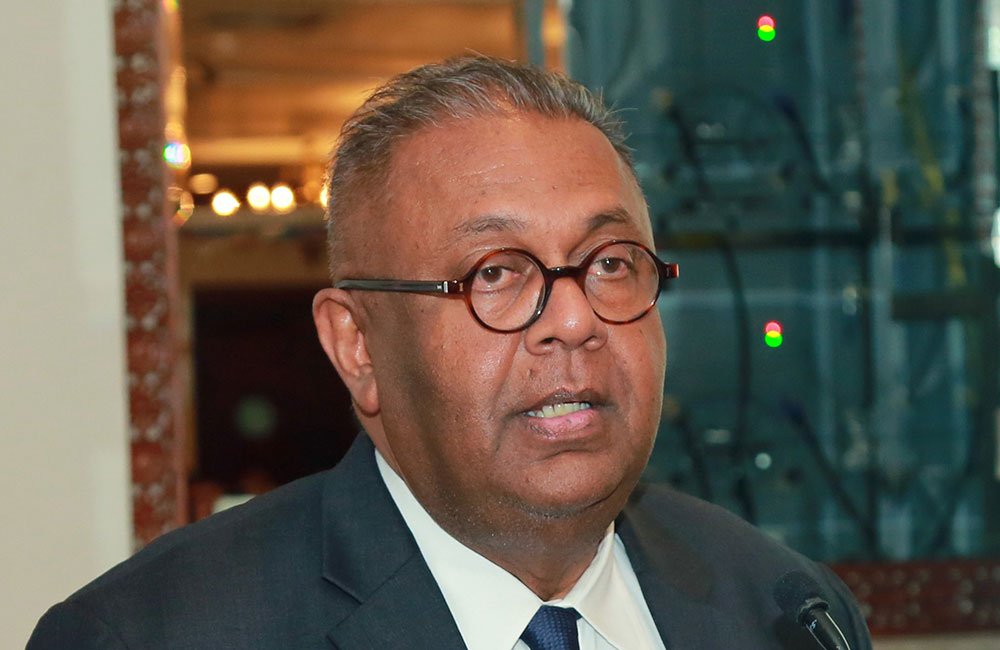
Mangala writes to UNESCO over the Sinharaja forest reserve
Former Minister of Finance Mangala Samaraweera has written to the United Nations Educational, Scientific and Cultural Organization (UNESCO) on the danger faced by the Sinharaja Forest Reserve due to the construction of a road from Lankagama to Neluwa through the Sinharaja forest reserve. In his letter to the Director General of UNESCO, Samaraweera noted that there were several attempts to construct roads bordering the forest reserve on previous occasions too, which were halted by Gazette Extraordinary 2150/31 dated 20 November 2019 through which former president Maithripala Sirisena authorised the expansion of the forest reserve to quadruple the protected area to counter the fragmentation of the forest.
He further said that environmentalists had pointed out that building the road would lead to hotels and shops being constructed along the way, and the forest reserve being encroached upon further including for cultivation purposes, and result in increase of vehicular traffic including at night time, increase in illegal activities including bio-piracy, and pollution of the river (Ginganga).
However, the former Minister said that environmentalists had suggested that the government have discussions with the approximately 300 families and allow the villagers to continue living in Lankagama and leave the road as it is, or accept that the villagers and their children have a right to development and a knowledge-based education and provide them land and necessary facilities elsewhere. If any of the villagers choose to remain in Lankagama as opposed to accepting land elsewhere, then that should be allowed only on the understanding that they should not expect any development within the village.
"Sri Lanka’s forest cover is just under 30% and that too is rapidly shrinking. While it is a fact that all Sri Lankans have a right to equal access to all facilities, it is also equally important for their survival that development is sustainable in keeping with the Sustainable Development Goals (SDGs). The interconnected nature of life, the absolute necessity of maintaining and preserving bio-diversity and forest cover for sustainable development and for dealing with climate change have now been scientifically proven. It is recognized that protection of natural resources and forest cover are essential to life and for maintaining a higher standard of life for all, not only in Sri Lanka but the Planet as a whole. The value of Sinharaja which is a World Heritage property, in this context, is not only for Sri Lanka but for the entire world at large. It is one of the region’s last remaining bastions of ecological importance," he added.
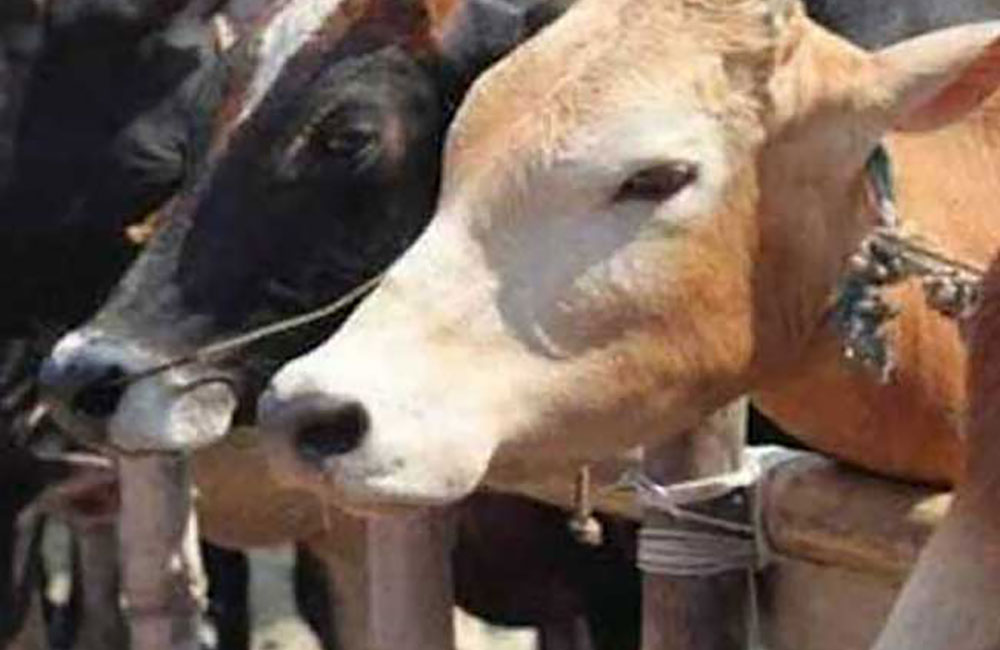
Cattle slaughter ban delayed
The decision on banning cattle slaughter in the country has been delayed by the government.
Cabinet Spokesperson, Minister Keheliya Rambukwella said that the final decision on Prime Minister Mahinda Rajapaksa's proposal has been delayed by a month.
The Prime Minister's proposal to ban cattle slaughter in the country was taken up for discussion at yesterday's meeting of the Cabinet of Ministers.
Prime Minister Rajapaksa's proposal was approved by the governing party parliamentary group earlier this week.
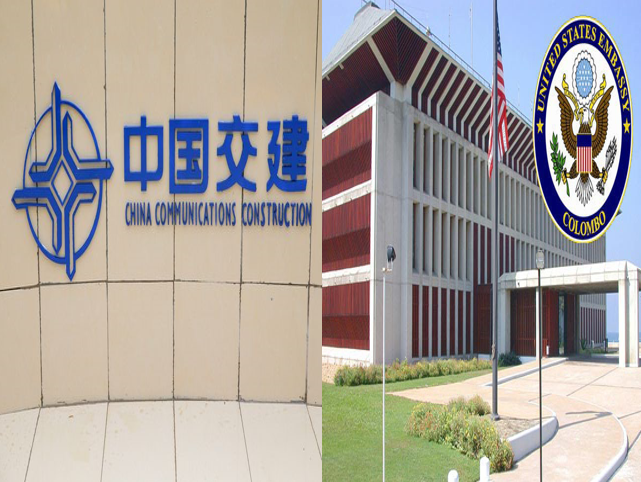
US warns countries to examine their dealings with CCCC

Gem and jewellery industrialists get massive tax relief
Sri Lanka’s gem and jewellery industrialists are to be provided with tax relief with a view to harnessing the maximum export potential of US$1 billion for the country. President Gotabaya Rajapaksa has directed relevant officials to remove the 14% income tax levied on profits earned by the gem and jewellery manufacturers and the 15% import tax on gold.
This directive has been issued by the President in response to a request made by Sri Lanka’s gem and jewellery industrialists to withdraw the 5 to 24 per cent tax imposed on their income under the new Inland Revenue Act (IRD) claiming that the current tax burden was unbearable for small scale direct and indirect exporters earning much needed foreign exchange for the country.
The industry which has the potential of bringing over US$ 1 billion into the country would collapse as a result of the heavy tax burden imposed on them, an official of the Sri Lanka Gem and Jewellery Association said.
He noted that the association has submitted an appeal to the President and the Finance Minister to provide some relief for them as the small gem exporters and licensed traders selling gems and jewellery to tourists will have to close down their business.
The withdrawal of the tax exemption given to them since 1979 was highly unjustifiable, he said adding that the 15 per cent tax on gold imports will be another blow against the industry.
The income tax concession given to the gem and jewellery industry from 1971 was removed from the income tax policy introduced in 2017.
This created a situation where the actual income earned from the export of gems and jewellery was not disclosed, stated the President's Media Division.
“In 2018, a 15% tax was imposed on gold imports. These taxes have led to a rise in jewellery prices. Relevant taxes should be removed immediately and steps should be taken for the betterment of the gem and jewellery industry,” the President said.
The President made this observation at a discussion held at the Presidential Secretariat on Monday (07) regarding the upcoming plans of the State Ministry of Gems and Jewellery related Industries.
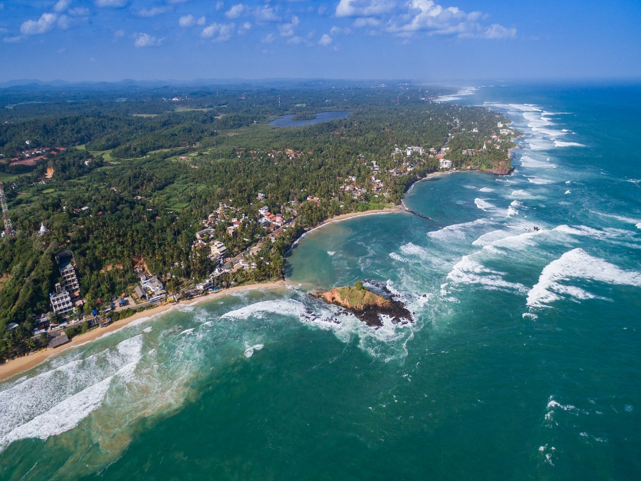
Foreigners engaged in illegal tourism businesses in Sri Lanka
There are nearly one thousand foreigners who are engaging in informal tourism in Sri Lanka running businesses such as restaurants, bars, villas, lodges and Ayurveda spas concentrated mainly in the Southern coastal areas bringing no income to Sri Lanka and the Director General of Sri Lanka Tourism said they will be holding discussions with the Immigration and Emigration Department next month to investigate the matter.
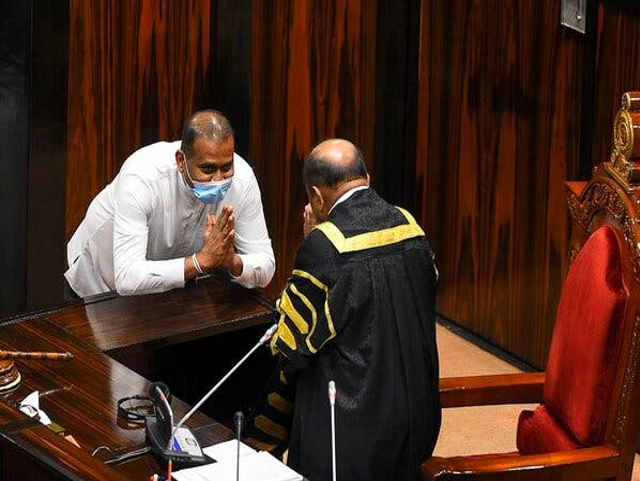
Choka Malli sworn in as MP amidst protests
Newly elected MP Premalal Jayasekera alias Choka Malli, who is on death row, was sworn in as a parliamentarian in the ninth parliament today.
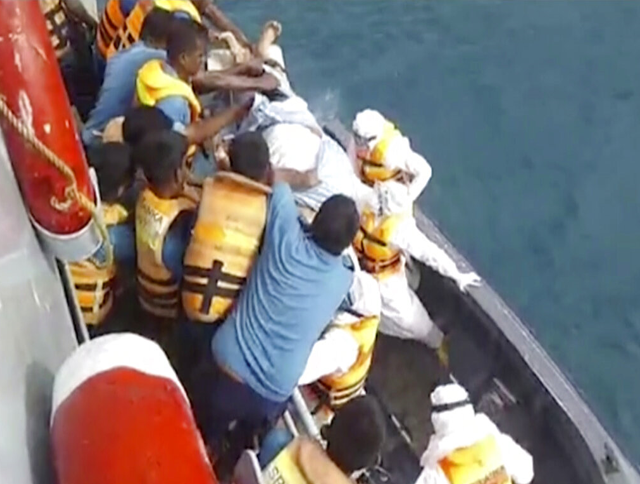
"MT New Diamond" crew member reported dead: Sri Lanka Navy
A new fire broke out on a supertanker carrying about two million barrels of oil in the Indian Ocean off Sri Lanka's eastern coast as Russian and Indian warships joined the battle to put out the blaze.
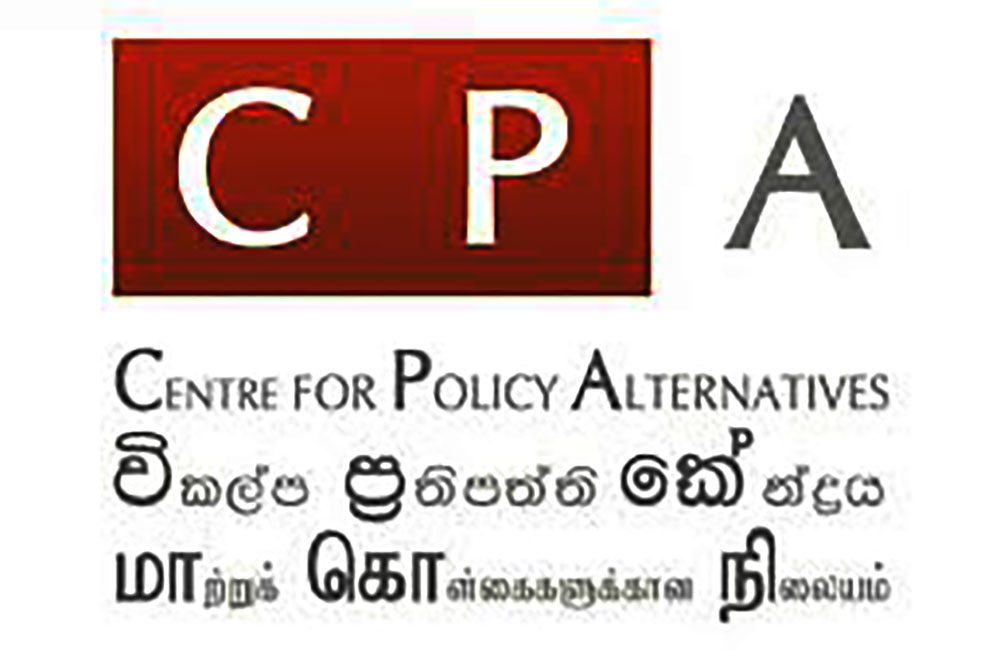
CPA expresses concern on 20A
The Centre for Policy Alternatives (CPA) is deeply concerned by the changes proposed by the Twentieth Amendment to the Constitution Bill gazetted on 2nd September 2020 and its impact on constitutional democracy in Sri Lanka.
The changes proposed in the Bill will set in motion a process that will seriously undermine the separation of powers, the rule of law, and fundamental freedoms, CPA said.
The principal changes proposed by the Twentieth Amendment Bill seek to remove the checks and balances on the executive presidency.
In particular, it abolishes the binding limitations on presidential powers in relation to key appointments to independent institutions through the pluralistic and deliberative process of the Constitutional Council.
Its replacement, the Parliamentary Council, is a mere rubber stamp of the executive, with no genuine deliberative role envisaged for its members, CPA said
It is a regression to what was in place under the Eighteenth Amendment, effectively providing sweeping powers to the President to appoint individuals to key institutions, and with it, politicising institutions that are meant to function independently of the political executive and for the benefit of citizens.
Moreover, CPA notes that the opportunity for citizens to challenge the executive actions of the President through fundamental rights applications has been removed, suggesting that the President is above the law.
The checks on presidential power within the executive are abolished by the removal of the requirement of the Prime Minister’s advice for the appointment and dismissal of Cabinet and other Ministers.
The appointment and particularly the dismissal of the Prime Minister are no longer dependent on the confidence of Parliament but at the discretion of the President.
Parliament is disempowered against the executive by the restoration of the President’s power to dissolve Parliament at will at any time after the first year of its term.
These fundamental changes to the constitutional separation and balance of powers will seriously undermine the accountability of government, and pose a significant challenge to existing democratic norms embodied in the Constitution, CPA claimed.
The erosion of constitutional checks and balances will also adversely impact on the efficient, effective, and transparent use of public funds, CPA pointed out.
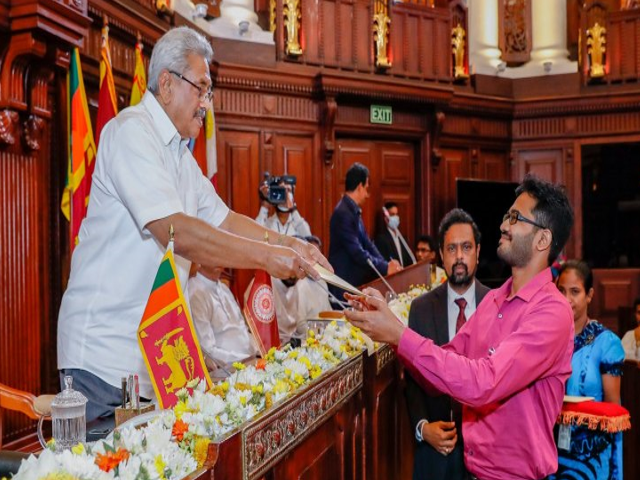
Sri Lanka graduate recruitment programme goes ahead overloading public sector
Pressure is mounting against certain appointments of persons recently made to the public sector by president Gotabaya Rajapaksa and the government.
Page 262 of 533